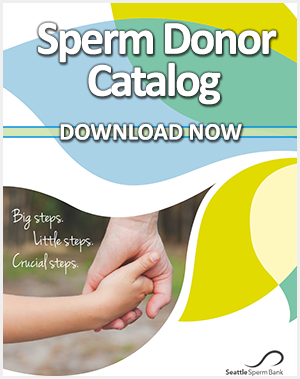
Becoming a single mother by choice is likely one of the most significant decisions of your life. The donor selection process can feel like a close second. Choosing the “perfect” donor can be overwhelming—it’s definitely not as simple as swiping left or right! But by breaking down the process into manageable steps, you can approach this decision with confidence. Here’s everything you need to consider in selecting a donor, along with some insights from my own journey.
Step 1: Understanding Types of Sperm Donors
There are four main types of sperm donors to consider. The terms may vary by country, but generally, the categories are as follows:
- Known Donors: These are people you know (such as friends) who agree to be a donor.
- Anonymous Donors: These donors agree to be anonymous, so identifying information about them remains confidential and is not intended to be disclosed.
- Open ID & ID Disclosure Donors: Open donors’ consent to one form of contact when the child reaches 18 years old, where some banks distinguish ID Disclosure donors in which identifying information will be made available including their name, address or email at the same age
Choosing between a known or unknown donor was a key decision for me. Initially, I considered asking a friend but soon realized this could bring complications. Ultimately, I chose an open donor to give my child the option to know their biological father in the future, respecting their autonomy.
Tip: If you’re considering a known donor, consult a legal counsel to understand the legalities and protect both yourself and your child.
Step 2: Choosing a Sperm Bank
When I began my search, I was surprised at how many options there were, each with unique profiles and information formats. Some factors to consider when selecting a sperm bank include:
- Accessibility: Start by accessing which sperm bank ships to your country and/or clinic.
- Diversity of Donor Profiles: Some banks have a limited number of profiles for minority donors. If finding an Indian donor was a priority, for example, I found that not every sperm bank had options.
Tip: Start by creating a list of sperm banks that meet your needs. Many sperm banks, such as Seattle Sperm Bank, ship internationally, making it easier to find a suitable match.
Step 3: Determine Your Criteria
This was one of the most personal steps for me. Initially, I had many criteria, including open status, height, background, education, CMV negative, genetic test results, and a clean family medical history. However, I soon realized that the more criteria I had, the fewer options remained. I had to prioritize and refine my criteria to reflect my top values. Here are some considerations:
- Physical Attributes: This includes height, weight, hair color, skin color, and eye color. Just remember to keep a balance and not get too focused on physical attributes.
- Medical and Genetic History: It’s crucial to understand a donor’s medical background to reduce potential health risks. I wanted my donor to have completed the full genetic testing to ensure compatibility with my results.
- CMV Status: If you’re CMV-negative, finding a CMV-negative donor might be recommended, though it may limit options. Consult your doctor about your CMV status and selecting a CMV-positive or negative donor
- Donor’s Background: Look for shared values, hobbies, education, and other traits that might resonate with you and your vision of your child’s potential personality or identity.
Step 4: Review and Narrow Down Profiles
Once you’ve clarified your criteria, it’s time to dive into the profiles. I read through dozens of profiles, examining everything from childhood photos to personal essays. Some profiles stood out to me for specific reasons—like one donor who decided to donate after his sister needed a donor herself. Little details like these made me feel a connection and guided my choices.
Tip: If you’re struggling to choose, imagine yourself sharing the donor’s profile with your future child. What parts would you be proud to tell them? This helped me to focus on the qualities I valued most.
Step 5: Selecting Your Top 3 Donors
After reviewing, aim to identify at least three top donor options. This gives you flexibility in case your first choice is unavailable, or you need additional vials. Remember that you may want more vials for future siblings, so plan accordingly.
Tip: Trust your intuition during this process. If a profile “sticks” with you for reasons you can’t fully explain, don’t ignore it—sometimes, your gut is guiding you toward the right choice.
Step 6: Understanding Vial Types and Quantities
Sperm banks offer several types of vials based on the procedure you’re planning:
- ICI (Unwashed): For intracervical insemination, which requires the sperm to be washed before use if used in another type of procedure.
- IUI (Washed): For intrauterine insemination, where the sperm is pre-washed. These are the most commonly used type of vial for all procedures.
- IVF (ART): For in vitro fertilization, and ICSI procedures that do not require higher sperm counts. These vials are typically less expensive as well.
- ICSI: For intracytoplasmic sperm injection, where a single healthy sperm is injected into each egg thus a much lower sperm count is suitable
Once you’ve chosen your donor, consider how many vials to purchase. For IUI, you may need multiple vials, but IVF generally requires fewer. Think about whether you want additional vials for future children and discuss with your doctor the quantity that makes sense for your family plan.
Final Thoughts
Selecting a sperm donor is an intensely personal journey, and it took me months to make my choice. Although I initially expected an “aha” moment, I realized that no donor would perfectly match all my preferences. Instead, I focused on the values that mattered most and trusted my instincts.
It’s normal to feel uncertain or to overthink; after all, this is a big decision. But trust yourself, prioritize your criteria, and remember that you’re making the best choice for both you and your future child. Your instincts and values will guide you to the right donor, allowing you to approach this journey with confidence.
Next Steps
Reema is available to help support your journey to parenthood using her personal experiences as a parent and her professional experiences as a coach. Find her on Choice Mom Coach.
Get started on your family-building goals by browsing our available donors. Do not hesitate to reach out to us if you need any assistance at (206) 558-1484 or cs@seattlespermbank.com.

